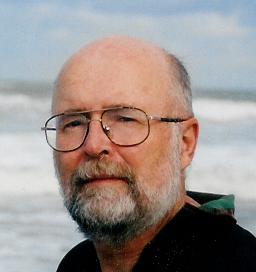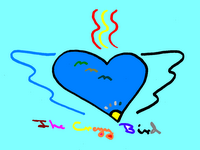 I'm sitting in a cabin up in Sweden, putting together these comments to the eighth instalment of "Crown of Thorns" to be posted when I get back to Denmark.
I'm sitting in a cabin up in Sweden, putting together these comments to the eighth instalment of "Crown of Thorns" to be posted when I get back to Denmark.The parents of one of my son's close friends has been so gracious as to lend their cabin to us this Palm Sunday weekend. It will be nice not to have much news these few days.
For all we know, the fuse in the Middle East may be burning short again, the one that was lit when Isaac Rabin was blown away with four bullets from a handheld gun. Or, King Codpiece and Mr. Snarly may be getting ready to do their "manly-man" act, dooming millions to far earlier and more exotic deaths than otherwise required by the facts of life.
In this instalment the poem cycle takes yet another unexpected turn. I had no idea when I started that the line, "However many castles you may build", would lead to Calvary, Golgatha and the Place of the Skull.
To speak and write freely teaches us things that we didn't know that we knew -- that is why I am constantly telling anyone who might just listen that the Freedom of Speech is the Mother of all Freedom*.
There ain't no avoiding them Calvary Blues!
The opening chord was struck the day you were born,
and you got to play the melody all the way through
to that final bar; when the angel blows his horn
in a final riff, to where does the "bridge" then lead?
To another verse?
Can anybody say for sure?
Preachers glibly speak [while our bodies bleed]
as if salvation were a homeopathic cure,
or a band-aid you put on your child's sore thumb.
But haven't you seen that life, and life alone
is the healer of all wounds?
Or, are you just dumb?
Can there be life without meat, or flesh without bone?
The "Place of the Skull"** is where Calvary is,
and you know nothing at all if you don't know where that is!
____________________________
* If you cannot speak freely, you cannot know your mind. If you do not know your mind, you cannot control it. If you cannot control your mind, someone else will be most happy to do it for you. Therefore, the freedom of speech is the mother of all freedom.
** I find it more than passing strange that the Gospels make such a point of telling us that "Golgatha" (Calvary) means "Place of the Skull" in Hebrew (Matt 27, 33; Mark 15, 22; John 19, 17), when it seems to me that the meaning of the Hebrew word renders better as "transfiguration", "metamorphous" or even "reincarnation". The root meaning of "gol" is a turning of some sort and a turn on the word means boiling eggs -- the reference is to how the eggs turn -- on the other the hand "golgatha" looks more like Aramaic than Hebrew, but who am I to say the Bible is a bit off mark?
Among the questions are, why do the composers of the Gospels want to draw our attention to "the place of the skull" and "where" is this "place"? From the texts, it should be between two "thieves". The well-read reader probably knows that certain Chinese (Taoist) mystics spoke of a "square inch field in the middle of a "square foot field".




No comments:
Post a Comment